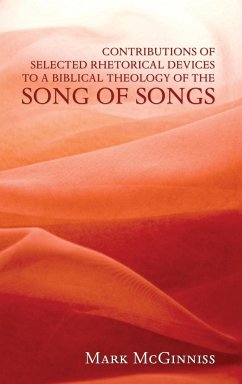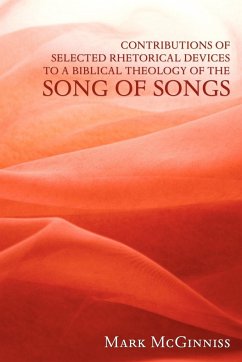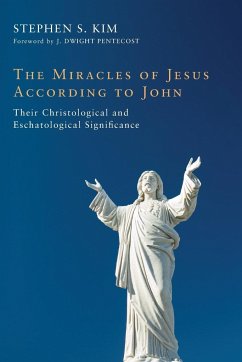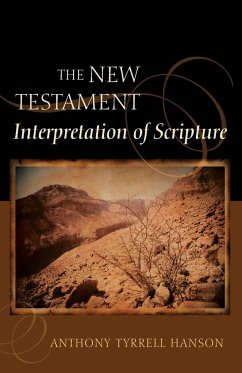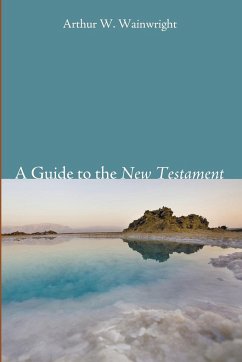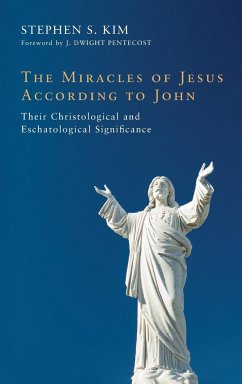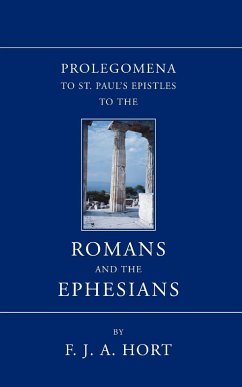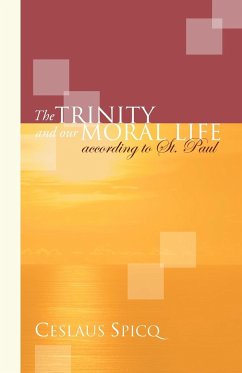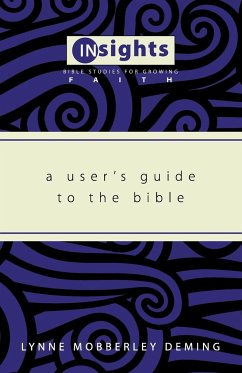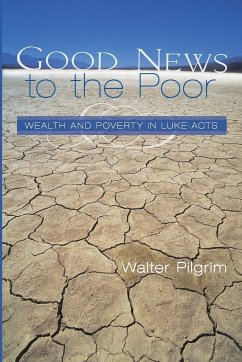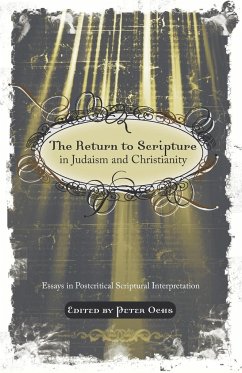
The Return to Scripture in Judaism and Christianity
Versandkostenfrei!
Versandfertig in 1-2 Wochen
37,99 €
inkl. MwSt.

PAYBACK Punkte
19 °P sammeln!
The scholars who have contributed to this volume of essays are Jewish and Christian thinkers who, without melding their different religious traditions and scholarly methods, have developed complementary responses to what they believe is wrong with contemporary biblical scholarship in Judaism and Christianity. The purpose of this collection is to draw attention to the similarities among these responses and to the possibility that they may contribute to a family of postcritical methods for interpreting the scriptural traditions. The postcritical scholars employ current methods of critical, scien...
The scholars who have contributed to this volume of essays are Jewish and Christian thinkers who, without melding their different religious traditions and scholarly methods, have developed complementary responses to what they believe is wrong with contemporary biblical scholarship in Judaism and Christianity. The purpose of this collection is to draw attention to the similarities among these responses and to the possibility that they may contribute to a family of postcritical methods for interpreting the scriptural traditions. The postcritical scholars employ current methods of critical, scientific inquiry to clarify the language, the historical contexts, and the didactic messages of the biblical traditions. They do not, however, find these methods sufficient. They argue that the biblical traditions communicate to their practitioners some rules of action that cannot be deciphered within the terms set by canons of critical reason that emerged in the European Renaissance and Enlightenment. Rather, among the Bible's unique rules of action are the principles for interpreting the traditions themselves. Postcritical scholars attempt to identify these rules of interpretation, producing what editor Peter Ochs has come to term ""postcritical Scriptural interpretation."" It is neither strictly modern nor premodern. This form of inquiry emerges in the dialogue that is now unfolding between a contemporary family of scholars and their scriptural traditions.



